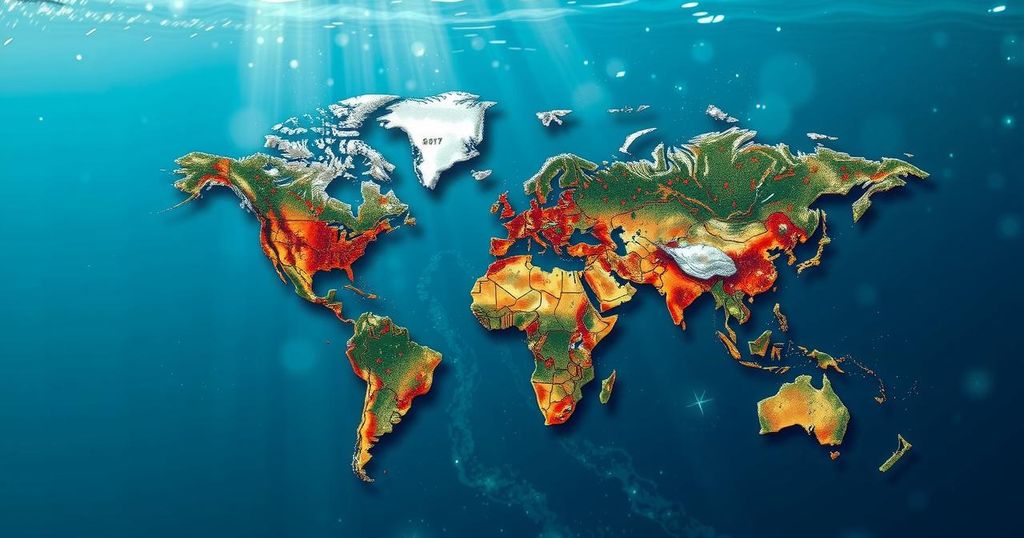A recent study published in *Nature Climate Change* reveals that Google Image Search results for “climate change” vary by country, reflecting local sentiments. In nations with high climate concern, such as Argentina, images reflect immediate threats like wildfires, while countries with lower concern, such as Estonia, show more distant depictions. This suggests image algorithms significantly influence public perceptions and responses to climate policy.
The recent study published in Nature Climate Change elucidates that the varying image search results related to “climate change” are largely influenced by the prevailing perspectives within different countries. For instance, in Argentina, heightened climate concerns are mirrored through images of wildfires and destruction, while Estonian search results typically feature icebergs and scientific charts, reflecting a more abstract and distant interpretation of the climate crisis. Researchers, led by Madalina Vlasceanu from the Stanford Doerr School of Sustainability, assert the necessity for more accurate and informative search algorithms that can truly portray the realities of climate change. The study involved an analysis of Google Image Search across 49 nations, revealing that emotional responses to these images varied based on regional climate concerns. Participants from high-concern nations showed greater emotional reactions and support for climate initiatives, driving the researchers to conclude that image search results play a critical role in framing public perception of climate change. A follow-up experiment corroborated these findings, demonstrating that individuals exposed to images prevalent in regions with substantial climate concern were more likely to advocate for climate policies and personal carbon-reducing actions. Vlasceanu’s team emphasizes the importance of advancing algorithms to accurately depict climate impacts, as these technological tools hold the potential to inform and inspire global climate action. In light of this, interdisciplinary collaboration among scientists, educators, engineers, and policymakers will be crucial to addressing climate challenges through innovative policies, educational reforms, and enhanced algorithmic functions. Furthermore, Vlasceanu intends to expand her research endeavors by studying the collective cognition that influences societal views on climate change and sustainability.
The interplay between image search algorithms and public perception of climate change is critical in understanding how visual representations impact societal attitudes and actions. As citizens increasingly turn to online platforms for information concerning environmental crises, the nature and context of these visual outputs can significantly sway opinions and emotional responses. The study conducted by researchers highlights the variability of images based on national sentiment toward climate change, thereby establishing a link between visual media and collective environmental awareness.
In conclusion, the findings from this study underscore the significant role that image search algorithms play in shaping societal perceptions of climate change. By providing access to relevant and reality-based imagery, these algorithms can foster a more informed global audience, encouraging proactive measures in the fight against climate issues. The necessity for refining these search technologies through collaborative efforts cannot be overstated, as it is imperative for mobilizing individuals and communities towards substantive climate action.
Original Source: news.stanford.edu






